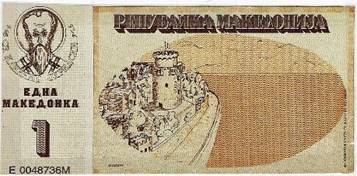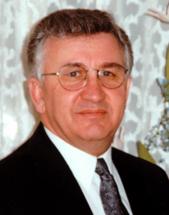What's
in a Name - A Rose by Any Other Name, Is It Still A Rose?
Is a rose by any other name still a rose? What if we
started calling the "rose" an "onion"? If you had both next
to each other, could you point to each and call each an onion? Would one be a
real onion and the other a fake onion? Would both smell the same, look the same,
have the same texture, color, and all other qualities? If you asked someone for
an onion what would he give you? Would your sweetheart appreciate the dozen
onions that you sent her for Valentine's Day?
Now, what happens if one area of our world started
calling itself with the same name as a neighboring area? What if this area also
took the identity and history of its neighbors'? What if this first area becomes
a country? Can it now decide to call itself with the same name as
its neighbor and the rest of the world recognizes it so? The Massachusetts Bay
Colony consisted of the area of the northern
New England
states and also
encompassed part of what today is the Canadian
province
of
Quebec
. Throughout the years,
many
Quebec
inhabitants have migrated from
Quebec
to the
New England
states. If
Quebec
broke away from
Canada
and became an
independent country, would it be suitable to change its name to "
New England
"? Would it bother
anyone if this "New England" hoisted a new flag with New Hampshire's
Old Man of the Mountain in the middle of it, printed new currency picturing
Bunker Hill on it, redrew their maps such that their territory is shown going
all the way down to Boston and beyond, and revised their history books to
indicate the colonial New England history as their own. Maybe we can call this
new country "New New England" and we can rename the Northeastern part
of the
United States
"Old New
England". Will that make it clear to everybody?
We read the
above hypothetical situation and think that it is so ridiculous that it could
never happen. But, that is exactly what
is happening today right before our eyes between The FYROM, former
Yugoslavia's southern republic, and Macedonia, one of Greece's northern
provinces. Before 1944
the area that later comprised of the former
Yugoslavia
's southern republic
was not called
Macedonia
but was called
Vardarska Banovina (Province -of the river-
Vardar
). It was in 1944 that
(Joseph Broz) Marshal Tito, the Communist
dictator ruling
Yugoslavia
at that time, created
Yugoslavia
's southern republic
and called it "Socialist Republic of Macedonia". However, "
Macedonia
" was already the
name of one of
Greece
's
northern provinces
. In ancient times, the
land that
Macedonia
covered included this
northern province
of
Greece
, a small part of
Bulgaria
, a small part of
Albania
, and a small part of
the region that Tito named the Socialist Republic of Macedonia.
It is pertinent to note that Tito’s Socialist Republic of Macedonia,
consisted of not only a small part of ancient
Macedonia
but also a
far larger part from Slavic
Yugoslavia
.
There is no doubt that creating this Republic in the southern region in
Yugoslavia
and including "
Macedonia
" in its name was
deliberate with the main intention of laying claim to the region of ancient
Macedonia
of the
northern province
of
Greece
. Particularly, what
Tito and his Communist allies wanted was the city of
Thessaloniki
with its lucrative
warm water port.
After 1944 a deliberate and systematic campaign was
initiated for
Yugoslavia
's southern republic to
take over the history of ancient
Macedonia
. Yugoslavian scholars
were commissioned to rewrite their history books with information of ancient
Macedonian rulers, to redraw maps showing their "Macedonia" going all
the way down to the northern half of Mount
Olympus, and to develop a language called "Macedonian" that they say
is the language that was spoken by the ancient Macedonians but which consists
mostly of a Bulgarian dialect. They clearly overlooked the unquestionable fact
that the inhabitants of ancient
Macedonia
were Greeks and spoke
the Greek language.
Numerous excavations in all of the ancient
Macedonia
area have consistently
unearthed relics clearly with Greek writings, and depictions of rulers clearly
designated with Greek names.
In September of 1991 this republic declared
independence from
Yugoslavia
and it named itself
"
Republic
of
Macedonia
" as a new
independent country. They designed a new flag with the Sun of Vergina at its
center and printed new currency with the White Tower of Thessaloniki; symbols
clearly from the northern
province
of
Greece
. Because of these
actions and also because of certain articles in their constitution which implied
that the their country had territorial rights to all of the ancient Macedonian
area,
Greece
imposed a trade embargo and prevented any
trade commerce through
Greece
's northern border.
Greece
reluctantly lifted the
trade embargo when The FYROM redesigned and accepted a new flag, stopped the
issuance of the new currency with the depiction of the White Tower of
Thessaloniki, and passed amended articles to their constitution implying that
they have no territorial rights outside their present boundaries.
Greece
, however, continued to
object to their use of the name
Macedonia
. Because of this
objection, the United Nations accepted this nation as a new member with the temporary
name of "The Former Yugoslav Republic Of Macedonia (The FYROM)" (UN
Resolutions #817 of April 7 and #845 of June 18 of 1993) until a permanent
solution to the name is found. To
this date no solution has been found and the UN deadline of
September 22, 2002
for a solution is quickly approaching.

Currency with the
White Tower of Thessaloniki which was intended for circulation but was
withheld because of objections from
Greece
. The
word in small print under the depiction of the city is "СОЛУН"
--"
THESSALONIKI
"
The Vergina Sun
Original
1991 FYROM Flag
Current
FYROM Flag
from the Tomb of Philip
excavated in
Greece
in 1978
The deliberate and systematic campaign of distortion,
stealing and absorption of the history and ethnicity of the ancient Macedonians
is ongoing today with full and untiring strength. Although officially this
country is known as The FYROM, through a vigorous campaign they have managed to
contrive the world to call it
Macedonia
in common day usage.
The Internet and mass-communication has made it easy for them to do this and
they have used these tools to create a flood of misinformation. One such example
that clearly shows their devious actions is the Web site:
http://faq.macedonia.org/. Hitler is credited with saying "Tell a big
enough lie, tell it often enough, and it becomes the truth". In some way
this provides an explanation as to why the inhabitants of The FYROM are so
adamant about keeping the name
Macedonia
. Now, fifty-eight
years after the start of the campaign of distortion, stealing and absorption of
the GREEK history and ethnicity of the ancient Macedonians, we find that the
inhabitants of The FYROM are mostly the children of 1944 and those that were
born afterwards and who grew up with these untruths. To them these have become
facts. But, must this go on any longer? Isn't it time to set the record
straight?
What's in a Name? - In a name you have identity,
history, ancestry, culture, ethnicity, belonging, cohesiveness, texture, color,
and many other qualities. And, it is in the Macedonian names, which those in The
FYROM now want to claim as their own, where one of the greatest proofs of the GREEKNESS
of
Macedonia
lies. Here are some of
countless examples:
Macedonian
= GREEK for "the tall one"
Amyntas
(father of Philip) = GREEK for
"defender"
Philippos
(Philip) = GREEK for "one who
loves the horse"
Alexandros
(Alexander) = GREEK for "the
protector of man"
Bucephalus
(Alexander's beloved horse with a large head)= GREEK for "ox-like head "
Aristotle
(Alexander's teacher) = GREEK for
"the best and perfect one"
Thessaloniki
= GREEK for "victory over the Thessalians"
If the entire region of The FYROM were from ancient
Macedonia
they would have some
legitimate claim for The FYROM to be called
Macedonia
. But it is not. The FYROM is mostly a Slavic region.
If a vast majority of the inhabitants in The FYROM
were Greeks, they would have some legitimate claim to have this country named
Macedonia
. But they are not. The Greek inhabitants in The FYROM are a small
minority.
So where does their claim for The FYROM to be called
Macedonia
in any form comes from? There is no valid reason, which is based
on truth for this country to have any form of a name that contains "
Macedonia
" in it.
Presently, internal strife between the various
minorities within The FYROM, has placed the country on the verge of collapse.
Albania
and
Bulgaria
are anxiously waiting
on the sidelines for this to happen to quickly rush in and grab a piece of it.
On the other hand,
Greece
maintains a position
of a staunch supporter for the survival of this country. Isn't it ironic that
The FYROM continues to slap
Greece
, its one and only
friend of the region, in the face with the "Macedonian Name Issue"?
I would think, though, that changing their name back
to "Vardarska" such as
"Vardarska Republika " or "Republika
Vardar" would put them on the road to their proper identity, ethnicity,
heritage and most of all dignity.
Bill
Gatzoulis
With
historical assistance from Marcus Templar
|

|
Bill Gatzoulis was born in Pentalofos of the Kozani
prefecture in the Macedonia Province of Greece and came to the
United States
in 1955. He graduated in 1968 from the
University
of
New Hampshire
and is now a retired Electrical Engineer from the US Navy Department. He
has served on the Parish Council of the Annunciation Greek Orthodox Church
in
Dover
NH
, as President of Thesseum Chapter #248 of The Order of AHEPA, and as
President of the Pentalofos Society. He is presently President of The
Hellenic Society Paideia of New Hampshire which aims to preserve and
promote the Hellenic heritage, history, language, art, culture, and
religion in
New Hampshire
.
|
http://www.antibaro.gr







